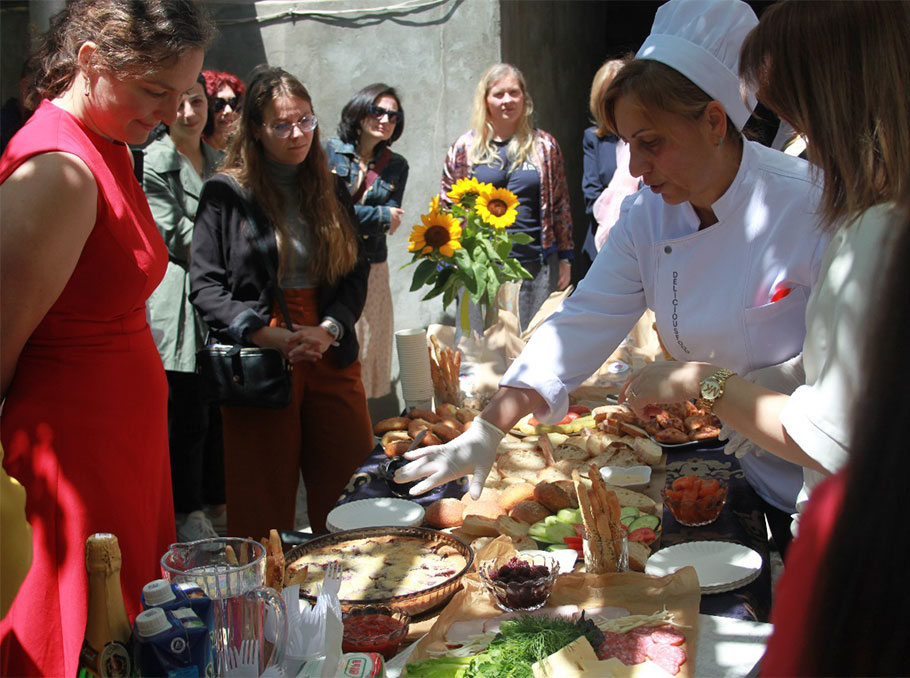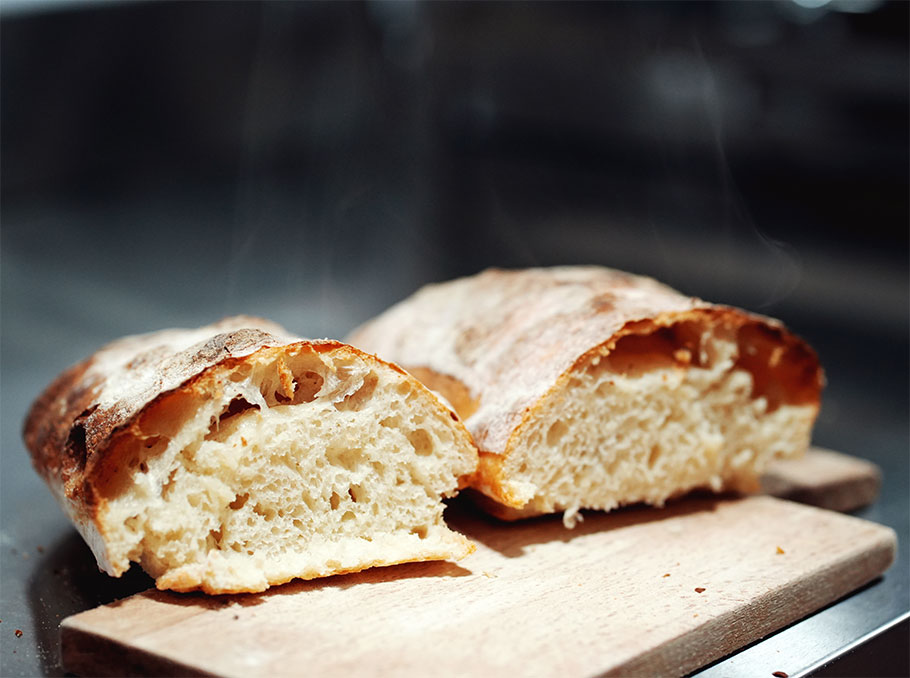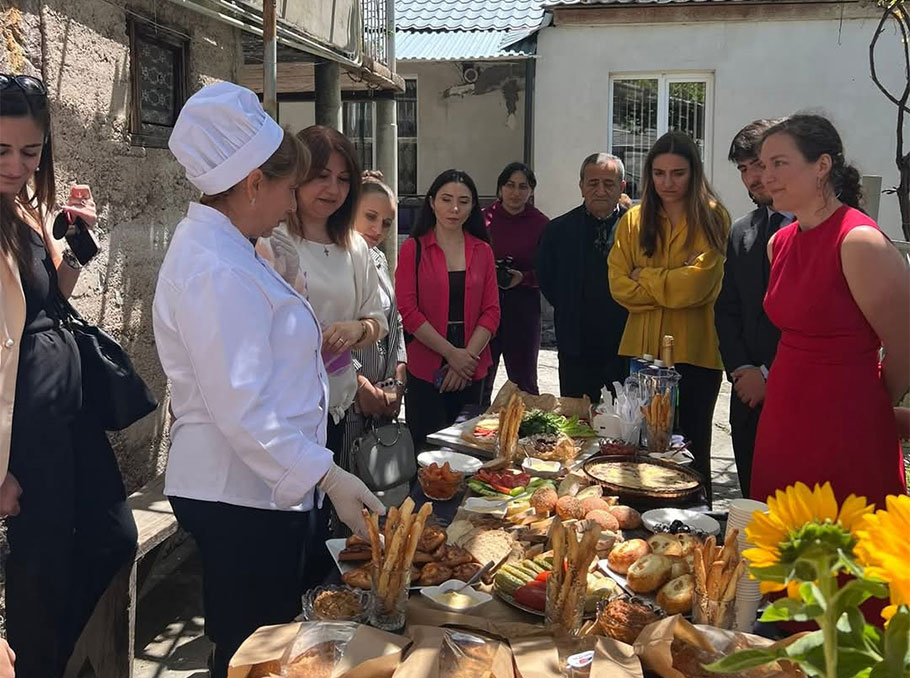Narine has prepared the sourdough in a good mood, ready to bake bread for us, her guests. She says that if her soul is not at peace and her mood is bad, even her 15 years of experience cannot help – the sensitive sourdough simply refuses to become good bread. Narine’s family returned to Armenia last year after a long journey of migration. They renovated their home and started a new business. Now, the aroma of freshly baked bread often fills their yard.
As she tells her story, Narine turns on the oven and patiently waits for it to heat up before placing three portions of dough inside. While the sourdough ciabattas are baking, Narine Arshakyan shares how her family moved from country to country, trying to adapt to new environments and find their place – yet always keeping the road back to Armenia in mind.
In uncertainty, with hands “tied”
We left Armenia in 1992 and settled in the Kaliningrad region of Russia. In 2022, when the Russian-Ukrainian conflict broke out, we decided to move to France. We didn’t think about whether it would be temporary or permanent. We stayed in France for about two years but couldn’t adapt.
The life of a migrant is hard, especially for someone who is used to working, creating, and earning their own living. When we arrived in France, we surrendered ourselves to the migration services in Lyon. At first, we lived independently, but after 2-3 months, we were transferred to a small rural town about 120 km from Lyon.
Our family of four – my husband, our two adult daughters, and I – were given an apartment. But in our new status, we felt as if our hands and feet were tied; we had no right to do anything without notifying the immigration authorities. Although we were there legally and had nothing to hide, we felt watched at every step. If we wanted to go to Lyon, for example, we had to inform the authorities in advance, specify whether we would return the same day or stay overnight, and if so, where. This made everyday life complicated.
During our time there, we were provided with food – plentiful and of good quality – and some organized activities to help make our daily lives more engaging. We attended French classes twice a week. We were not unhappy, but being deprived of the right to work weighed heavily on us. This became one of the main reasons we started thinking about returning. It took a long time to get a work permit – in fact, two years weren’t enough. We found ourselves facing a process that could take years, with no guarantee of success.
A dream that came true in the homeland
On April 18, 2024, our daughters made the decision to return to Armenia. Although they were already established in Russia and had good jobs, they came back to their homeland. My husband and I stayed behind for a while longer, but as the uncertainty dragged on, we too began thinking about returning.
Since the girls had returned earlier than us, during the last court hearing we received a “negative” decision. One of the people involved in our case suggested that we move to another city in France, apply to a different organization, get accommodation, and work illegally while waiting for our legal status to be resolved. In other words, they were offering us a way to hide. But we didn’t want to live like that. We applied to the French Office for Immigration and Integration (OFII) for voluntary return. In July 2024, we came back to Armenia. Thanks to the assistance provided for voluntary return, we were able to partially renovate our house.
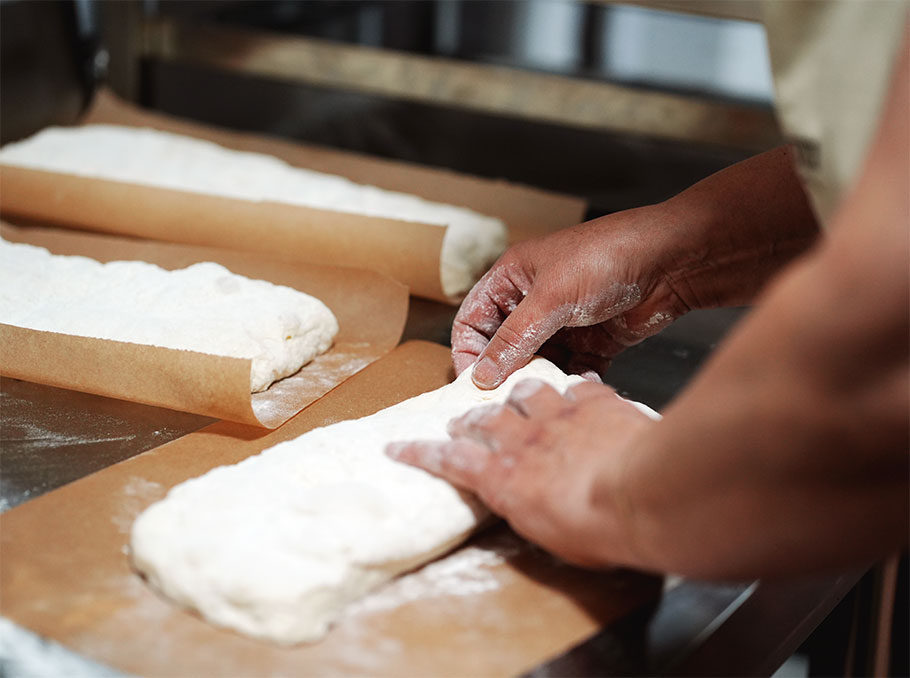
Photo: Mediamax
Even while we were still in France, we thought a lot about what we could do to succeed upon returning, so that we would never again consider leaving Armenia. Later, with financial support from the French Office for Immigration and Integration and the help of the People in Need NGO, we purchased the necessary equipment and set up a small bakery in part of our house – “Hatsekats.” It is truly the realization of my dream. Although I am a multi-channel communication specialist by profession, I worked in high-end restaurant pastry shops for about 15 years. I had always dreamed of having my own space where I could finally bring to life the ideas that were impossible to implement while working in someone else’s kitchen.
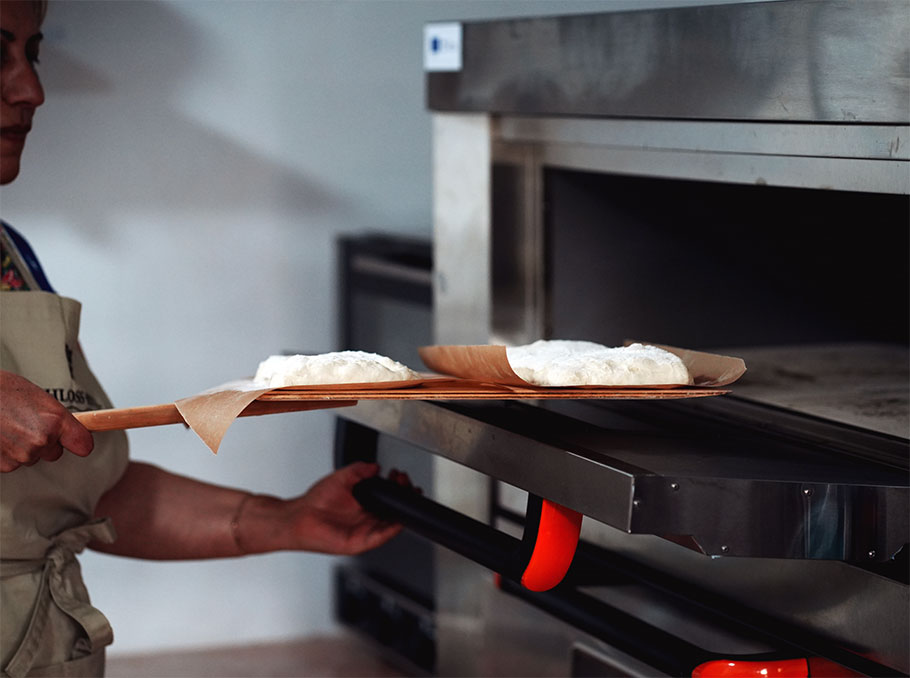
Photo: Mediamax
We named our workshop “Hatsekats,” inspired by ancient Armenia, where places with this name served as rest stops for travelers and caravans – a place to eat bread and find shelter.
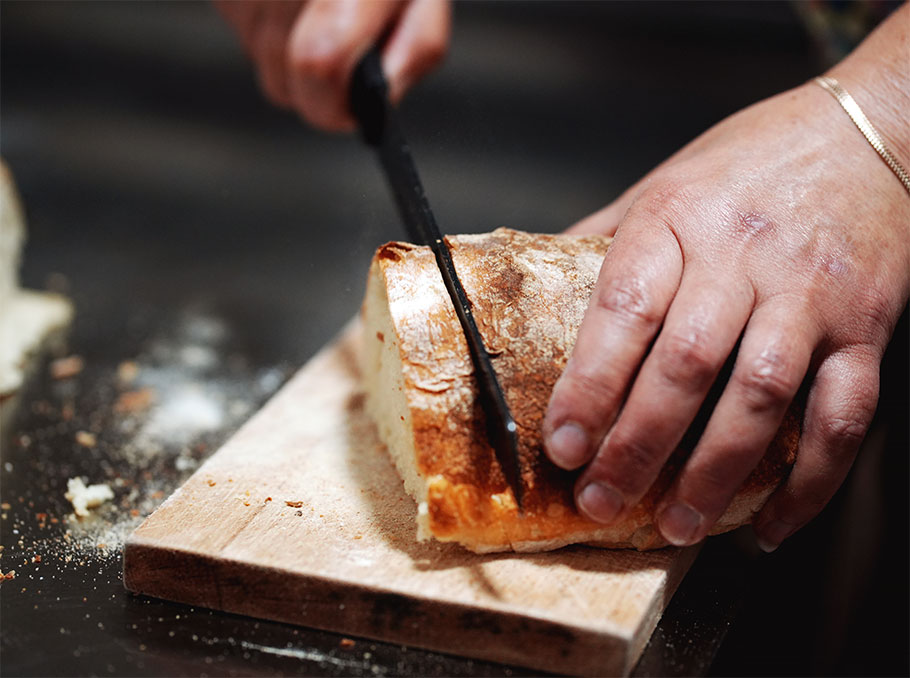
Photo: Mediamax
I focus mainly on sourdough breads, but my goal is to eventually offer a wider variety of dough-based products: sweet and savory, nutritious pies perfect for a break or snack. I bake whole-grain sourdough Borodinsky, ciabatta, focaccia, and Italian grissini breadsticks, which have become a favorite among children and pair perfectly with sauces, wine, soups, or salads. I also have an interesting recipe for gata, and I hope to gradually make Armenian gata a recognized standard. We have been open for less than a month. For now, we work on a pre-order basis – customers either come to pick up their orders or we deliver them.
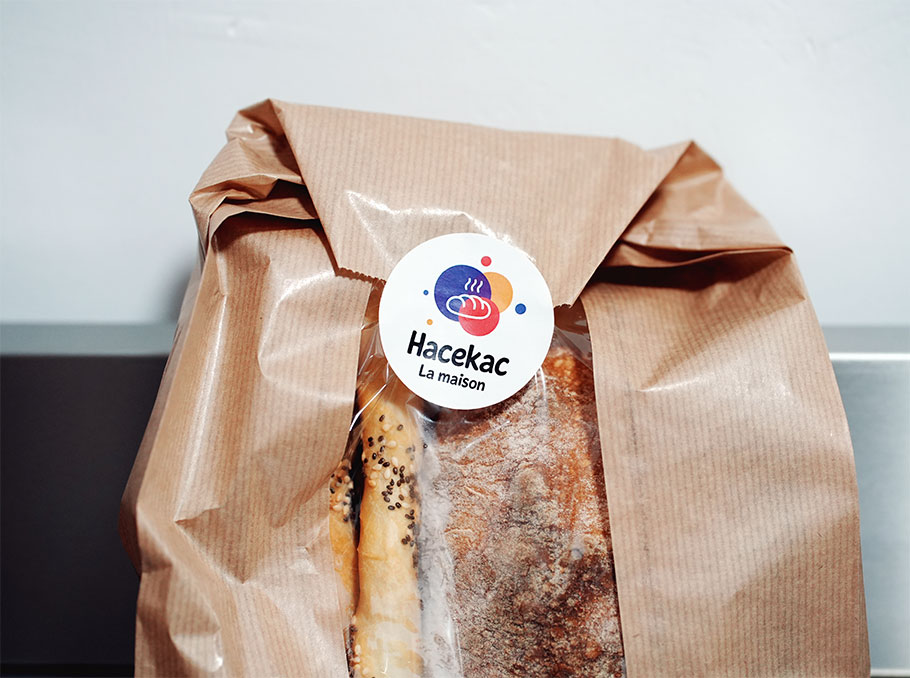
Photo: Mediamax
At first, we planned to work in the bakery as a family, but then we decided that each of us would pursue our own path. Now, we all have our own jobs. When we left Armenia, we never imagined that we are leaving for good – we did not burn bridges and we didn’t sell the house – the thought of returning was always in the back of our minds. That’s why coming back wasn’t difficult for us.
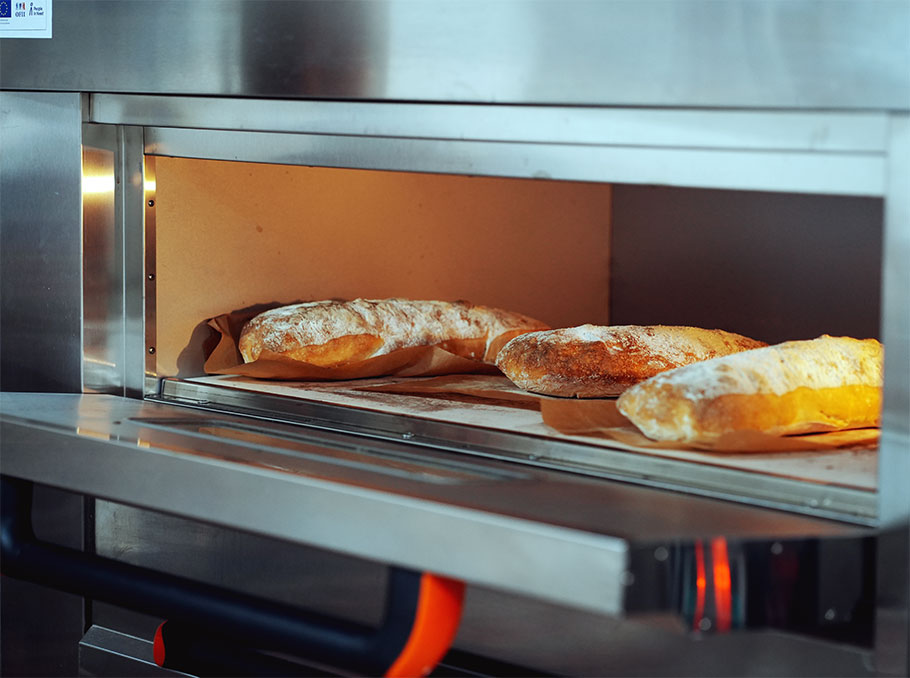
Photo: Mediamax
We have not regretted returning for a single moment. After leaving Armenia in 1993, we tried several times to come back, but financial hardships forced us to leave again. This return was a long and difficult journey. But now, being home, having our own business, and seeing everything finally fall into place – it feels right.
This article was produced within “Reinforcement of the Migration Management System in the Republic of Armenia” project implemented by People in Need. The project is co-funded by the European Union through the Migration Partnership Facility (MPF) implemented by the International Centre for Migration Policy Development (ICMPD).
Ani Khchoyan
Photos by Agape Grigoryan and Hatsekats









